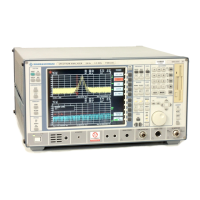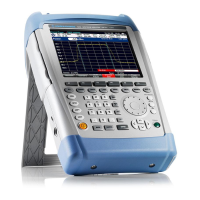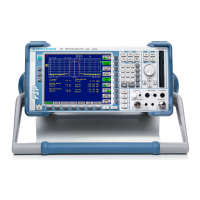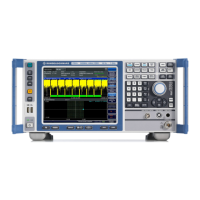FSE Instrument Model and Command Processing
1065.6016.12 5.17 E-16
Output Unit
The output unit collects the information requested by the controller, which it receives from the data set
management. It processes it according to the SCPI rules and makes it available in the output buffer.
The output buffer has a size of 4096 characters. If the information requested is longer, it is made
available "in portions" without this being recognized by the controller.
If the instrument is addressed as a talker without the output buffer containing data or awaiting data from
the data set management, the output unit sends error message "Query UNTERMINATED" to the status
reporting system. No data are sent on the IEC bus, the controller waits until it has reached its time limit.
This behaviour is specified by SCPI.
Command Sequence and Command Synchronization
What has been said above makes clear that all commands can potentially be carried out overlapping.
Equally, setting commands within one command line are not absolutely serviced in the order in which
they have been received.
In order to make sure that commands are actually carried out in a certain order, each command must
be sent in a separate command line, that is to say, with a separate IBWRT()-call.
In order to prevent an overlapping execution of commands, one of commands *OPC, *OPC? or *WAI
must be used. All three commands cause a certain action only to be carried out after the hardware has
been set and has settled. By a suitable programming, the contoller can be forced to wait for the
respective action to occur (cf. Table 5-1).
Table 5-1 Synchronisation using *OPC, *OPC? and *WAI
Commnd Action after the hardware has settled Programming the controller
*OPC Setting the opteration-complete bit in the ESR - Setting bit 0 in the ESE
- Setting bit 5 in the SRE
- Waiting for service request (SRQ)
*OPC? Writing a "1" into the output buffer Addressing the instrument as a talker
*WAI Continuing the IEC-bus handshake Sending the next command
An example as to command synchronization can be found in chapter 7 "Program Examples".

